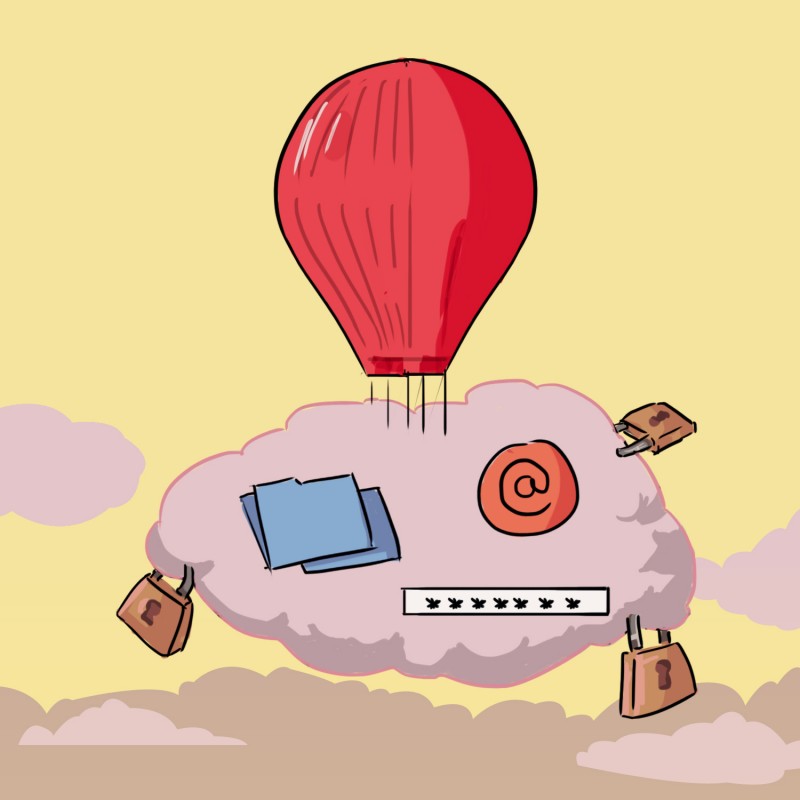Future of tech privacy in modern day

Privacy has experienced incredible reformation in this past decade

Privacy has experienced incredible reformation in this past decade; the age-old reminder not to take candy or rides from strangers has technologically proliferated into cautionary prompts to regularly modify login information. We are no longer fending off the creep in our small city; we are up against the entire world that is but a few clicks and Google searches away from creating a mini map of our lives.
In light of the recent release of information from users on Ashley Madison, the contemporary debate of online privacy, or lack thereof, has temporarily resurfaced. While information stored in an account might spill into a public sphere infrequently, online users should understand that the Internet is a massive database which syphons every click, share, enter and delete. Clearing your browser history or fooling around Incognito is no match for the “Big Brother-esque” veracity of the worldwide web.
Earlier this year, the trending release of both private and provocative photos of various celebrity women was a grave reminder that access to information is straightforward and a stereotypical “hacker” can be an average person with some curiosity, unlimited Wi-Fi and some free time.
Each of these instances augments a consciousness amid the general public that at any given time our secrets might be the next news headline. Unfortunately, this can happen to undeserving people who are unexpectedly targeted and publically shamed.
Take for instance the 27-year-old popular video gamer Joshua Peters whose IP address was ripped during a live stream from his home in Minnesota.
In front of over 50,000 avid viewers, Peters was a victim of “swatting” — an Internet prank where law enforcement assembles a SWAT team to storm a person’s home under the false impression that there is a serious crime being committed. The attack on Peters, or entertainers like him, might have been a hoax but the fallout is very real. The experience was real.
While this exploitation of privacy is not unfamiliar to online users, there is a serious untapped culture of defaming the guilty which I find to be most fascinating. Doxing, the release of detailed personal information, has become a complex tool to upholding justice during times where the judiciary is failing or acting with a deliberate resistance.
Picture this: Sandra Bland pulled over for a routine traffic stop that went awry as a Texas State trooper ends up wildly botching a professional interaction by threatening to use his taser and employing violence to a somewhat defensive yet compliant victim. As social media shared the dashboard video, the simple title of Texas State trooper, whose identity was not immediately released as he was under investigation for his actions, was being outed on a nationwide scale. His name, his photo, along with the prejudice that occurred was relayed in seconds as public information. He had been doxed and society launched a cohesive utilitarian goal for justice.
The release of information is often synonymous with hacking or abuse although it is becoming a tangible platform for activism. It is important to distinguish between ways in which information is shared. Contemporary perceptions of public spectacles has removed justice and politics from the hands of the few and redistributed it. In a technological age of connectedness and immediacy, society decides what is fair and just.
Doxing, then, unites many into a sort of makeshift body politic operating at an international level.
The most notorious group of Doxers is known as Anonymous. Comprised of a worldwide selection of ‘Anons’ wearing masks and endorsing the chilling motto, “We are Anonymous. We are Legion. We do not forgive. We do not forget. Expect us” as they aggressively push toward fairness. Whether they are doxing a corporate thief, a lying politician or a corrupt police officer, Anonymous means business. When a crime is committed, they stop at nothing to reveal telephone numbers, home addresses, in addition to detailed personal information.
Doxing and the stripping of power associated with one’s identity which ensues is not a new concept yet remains in its infancy. It’s the revolutionary new “middle class” with a voice ready to engage with ferocity. So far, a notable pitfall is the validity of a dox — mistakes are not unheard of and doxing the wrong person is tremendously consequential.
There is a negative connotation prescribed to hacking, to infringing on the privacy of another person but in instances where the collective is cooperating to restore justice and mutually resist, the world of social media unfolds into a dynamic sphere of connectedness.


